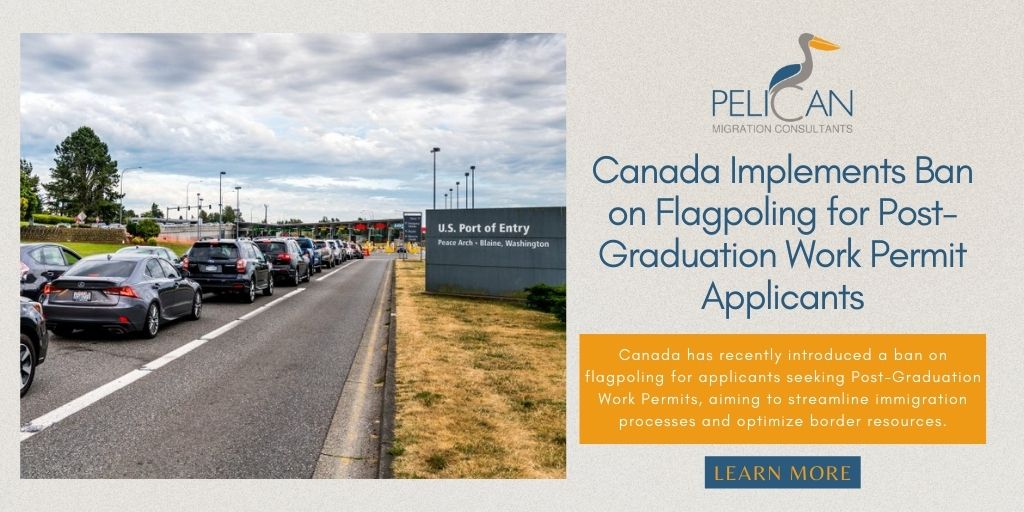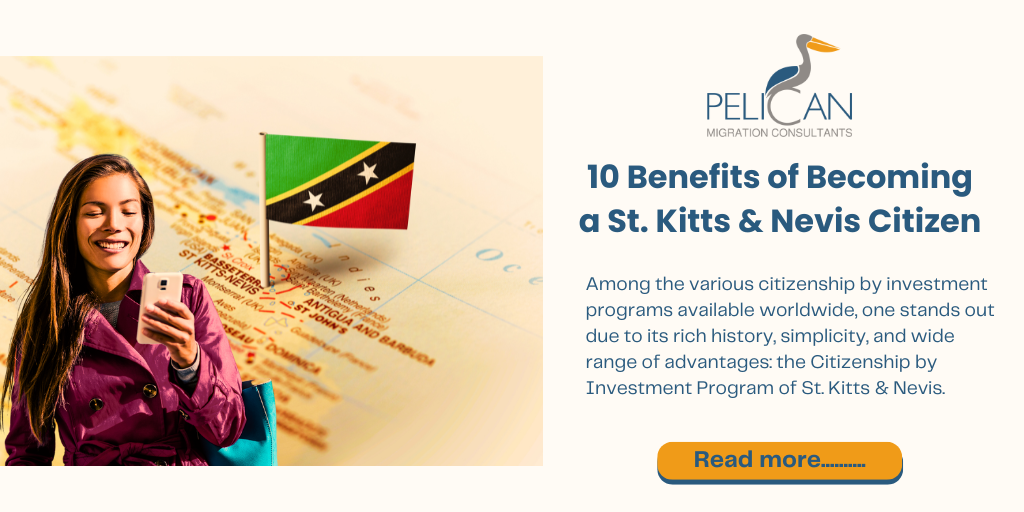
On June 21, 2024, Immigration, Refugees and Citizenship Canada (IRCC) introduced a notable revision to the Post-Graduation Work Permit (PGWP) application process. This policy update aims to bolster the integrity of Canada’s immigration system by barring foreign nationals from applying for a PGWP at the border. The adjustment is intended to curtail the practice of "flagpoling" while enhancing efficiency and fairness in immigration procedures.
Understanding Flagpoling: A Shortcut in Canadian Immigration
Flagpoling refers to a strategy employed by certain temporary residents to circumvent standard waiting periods for work or study permits by briefly exiting and re-entering Canada, thereby obtaining immediate immigration services at the border. Although this approach may expedite individual applications, it places considerable strain on border resources, diverts officers from critical responsibilities, and disrupts the travel and transport of goods. Over the past year, approximately twenty percent of all flagpoling incidents have involved applicants seeking Post-Graduation Work Permits (PGWPs).
Prohibiting Border Applications: Changes to Canada's Post-Graduation Work Permit Policy
In a recent update, Canada has implemented a new policy prohibiting Post-Graduation Work Permit (PGWP) applicants from applying at the border. This change directs applicants to utilize in-Canada application processes, aiming to alleviate border congestion and enable border officers to prioritize enforcement and smooth cross-border movement efficiently.
Government's Justification for Policy Change
Marc Miller, the Minister of Immigration, Refugees, and Citizenship, underscored the significance of the new measure. He stressed Canada's deep appreciation for international graduates' contributions but argued that the practice of flagpoling imposes unnecessary strain on border resources. By reallocating these resources, border officers can more effectively ensure the safety, security, and prosperity of both Canadians and Americans.
Impact on Border Services and Policy Goals
Dominic LeBlanc, Minister of Public Safety, Democratic Institutions, and Intergovernmental Affairs, weighed in on the matter, highlighting the considerable strain flagpoling places on border services officers. He emphasized the delicate balance required between delivering immigration services and upholding border security. The government's decision to prohibit flagpoling for PGWP applicants aims to uphold efficiency and security along the shared border with the United States.
Enhanced Support for PGWP Applicants
In support of PGWP applicants and to uphold Canada's commitment to welcoming international graduates, the government has introduced several initiatives aimed at streamlining the application process:
Accelerated Processing Times: Measures are being implemented to reduce processing delays for in-Canada work permit applications, ensuring quicker issuance of permits.
Simplified Online Applications: The IRCC has enhanced the usability of online forms, enabling applicants to maintain employment while their applications are processed.
Immediate Work Authorization: New policies allow individuals to commence employment with new employers immediately, even prior to finalizing their updated work permits.
Key Points to Note
Study Permit Expiry: Normally, a study permit expires 90 days after a student completes their program. Graduates can apply online for a PGWP before this expiration, enabling them to work full-time while awaiting approval.
Enhanced Processing: Recent reductions in flagpoling hours at 12 ports of entry have assisted border services officers in handling increased traveler traffic and prioritizing individuals at high risk and trade facilitation.
The recent prohibition of flagpoling for PGWP applicants marks a notable policy adjustment aimed at enhancing the efficiency and integrity of Canada's immigration system. By promoting in-Canada applications, the government seeks to streamline procedures and alleviate border congestion, thus optimizing the use of resources. This shift not only aids border officers but also offers international graduates a more structured and efficient route to acquiring their work permits.
For further guidance on your immigration journey, reach out to Pelican Migration Consultants today.
Navigating Your Immigration Journey with Pelican Migration Consultants
Embarking on an immigration journey can be complex, but with Pelican Migration Consultants by your side, you can navigate through the intricacies of the process smoothly and effectively. Whether you're aiming for a study permit, visit visa, or permanent residency in Canada, our dedicated team offers expert guidance tailored to your specific needs and goals.
- Comprehensive Assessment: We conduct thorough assessments to determine the most suitable immigration pathway for your situation.
- Tailored Solutions: Personalized strategies and solutions to optimize your chances of success in your immigration endeavors.
- Expert Guidance: Benefit from our team's extensive knowledge and experience in Canadian immigration laws and procedures.
- Efficiency and Support: Streamlined processes and ongoing support throughout every stage of your application.
- Long-term Planning: Guidance on pathways beyond temporary permits, including pathways to permanent residency and citizenship.


